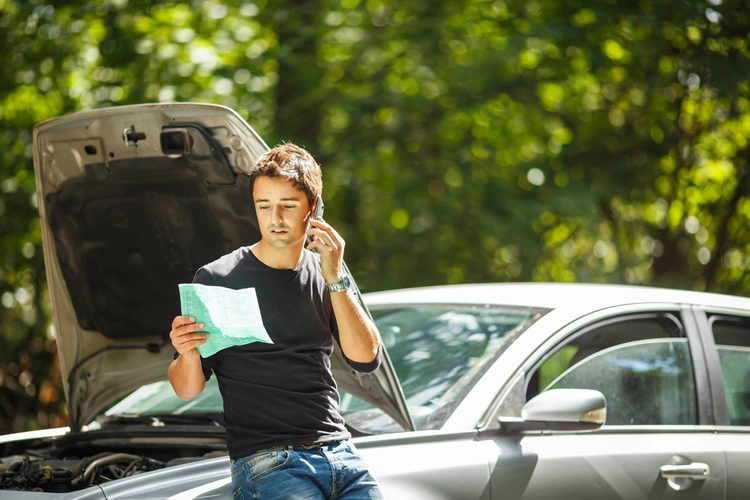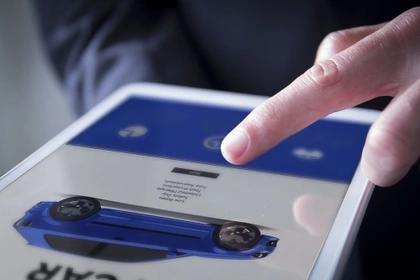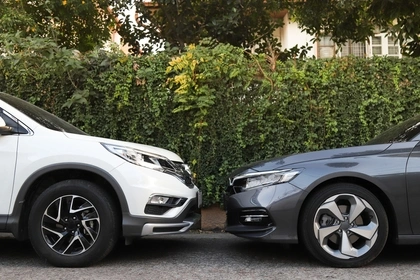What is fully comprehensive insurance?
There are three different levels of car insurance, with fully comprehensive being the highest level. This means that it gives you the most cover, so you can drive secure in the knowledge that you are insured against pretty much anything. Most providers will cover you against any damage, fire, theft, or medical expenses, regardless of who is at fault. Some offer other things, like cover to drive other cars, for example. But this can differ between insurers.
The mid-level is third-party, fire and theft. You are covered against damage caused to other people, cars and property, as well as if your car is on fire or gets stolen or broken into. However, medical expenses and driving other cars aren’t usually covered.
The lowest level of cover is third-party insurance. It only covers you against damages caused to other people, cars and property. This makes it the cheapest form of insurance. But be aware that you’ll have to pay for any damage that you’re not covered for if anything happens, alongside your insurance.
What does comprehensive car insurance cover?
Fully comprehensive car insurance is the highest form of cover you can get. Exactly what you are covered for can differ slightly between providers, but it usually includes things like:
Accidental damages
This is where you have an accident while driving and damage is caused to your car and/or someone else’s cars.
Personal injury
If you get hurt during a car accident, your medical expenses will usually be covered.
Cover for stolen/damaged personal belongings
If somebody breaks into or steals your car, you’re covered – even if it was parked overnight.
Windscreen repair
The insurer will cover any damage to your windscreen, whether it happened due to vandalism or weather damage.
What is the difference between comprehensive and third-party insurance?
Many people find themselves tempted by the usually low cost of third-party insurance. But costs aside, it’s good to understand the key differences between the two types of cover before making a decision:
- Comprehensive insurance is the highest level of cover you can get, whereas third-party is the lowest.
- You are insured for most events or accidents that can happen with comprehensive insurance.
- Third-party insurance only covers you for damage caused to other people’s cars and property, or the people themselves.
- Comprehensive insurance is much more expensive because of the high level of cover, especially for inexperienced drivers.
- However, it can work out cheaper if you have an accident that isn’t covered by third-party insurance.
Does comprehensive insurance cover driving other cars?
In some cases, yes. But you must check the terms of your policy because all providers are different. If driving other cars is something you do a lot, it may be best to find a policy that covers you for this. Otherwise, you may have to take out temporary car insurance (alongside your own) every time you drive a different car, which can be expensive.
On the other hand, if you only drive other cars occasionally, such as just rental cars on holiday, it may work out cheaper to just get temporary car insurance when you need it. This is because fully comprehensive car insurance that covers you for all vehicles can be really expensive and difficult to obtain.
What level of cover will I have if I am insured to drive other cars?
Driving other cars cover (DOC) is less common on comprehensive insurance policies than it used to be, but it is still possible to find.
If you manage to get it, it’s good to know exactly what you’re covered for. This will depend on the provider, but there are some main points that it’s good to be aware of.
Firstly, under a DOC policy, you are covered to drive anyone else’s car in the UK. This means that if you have an accident, your insurance provider may cover it. If you don’t have DOC, you’ll need to take out temporary car insurance in order to drive somebody else’s car or become a named driver. Otherwise, you’d be breaking the law.
Secondly, it’s likely that you’ll only have third-party cover under a DOC policy. If you have an accident and are found to be at fault, or the car is stolen or set on fire, your insurance won’t cover it. The exact level of cover you have will be in your policy document, alongside any other conditions. For example, some DOC policies only cover you for driving somebody else’s car in an emergency.
Finally, it’s incredibly difficult for anyone under the age of 25 or with any prior driving convictions to get a DOC policy. If you are a new driver, you may have to wait until you build up some experience.
Compare cheap car insurance quotes
- Search over 100 providers
- Quick and easy comparison tool
Disclaimer: We make every effort to ensure content is correct when published. Information on this website doesn't constitute financial advice, and we aren't responsible for the content of any external sites.






